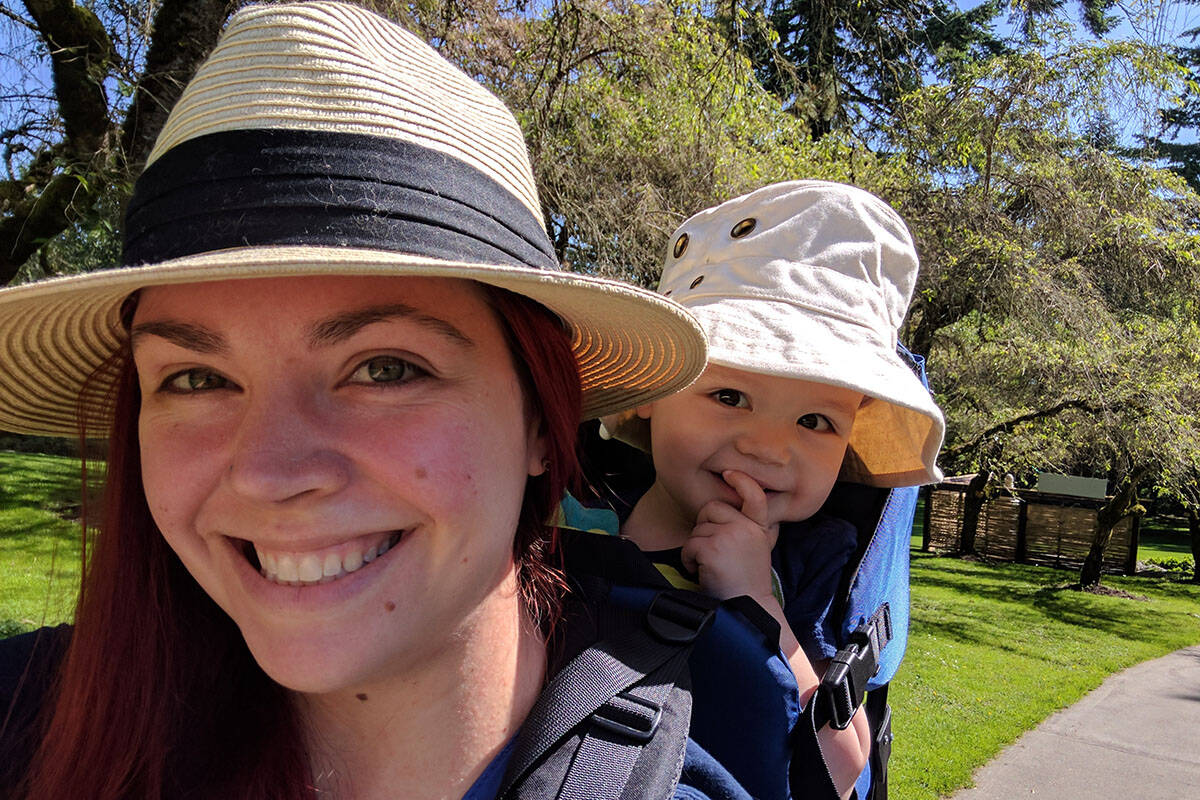Bianca Hayes is determined to make the Guinness World Records as the fastest woman to bicycle across Canada – all while raising $1 million in honour of her late sister who battled ovarian cancer.
On Monday (June 13) Hayes departed from Vancouver and hopes to arrive in Halifax, Nova Scotia, in just over two weeks.
In 2020, Hayes broke the record at 19 days, marking the fastest a woman had biked across the country, but the feat was considered unofficial because Guinness World Records would only create the title if she could get it down to 15 days.
A second attempt has been on Hayes mind ever since, she said. Hayes wants to hold the Guinness record of the women’s fastest trans-Canada ride to honour her sister, Katrina Jessen, who died in 2018 from ovarian cancer.
“[I am doing it for the women] that feel like they have got the cancer that nobody knows or cares about. I think it is important. I think it is necessary to do something with a really big splash, to get that attention and wake people up,” Hayes told Black Press Media in a phone interview.
Jessen, who left behind a toddler named Calvin, is remembered by Hayes as a witty and loving role model. Jessen was five years older than her, so Hayes looked up to Jessen for her intelligence and independence.
The pair grew up together in Vancouver’s North Shore where biking on trails was commonplace. Hayes would mountain bike with her sister for fun, but never cycled with her current intensity until after Jessen’s death. Jessen died a year after receiving her ovarian cancer diagnosis. Hayes used cycling as an outlet to deal with her grief while showing her support for others who are going through the same thing.
Lessons learned from her first trip
She picked up cycling when she participated in the 2018 Ride to Conquer Cancer in Vancouver, and got hooked on riding when she saw thousands of people affected by cancer, including survivors, attend this event.
As for her attempt this month: every second counts and lessons have been learned, she said.
Along the grueling 5,900-kilometre route, Hayes ran into 22 flat tires at a time when biking gear was selling out at most stores, her RV broke down and a dead battery in her support car left her riding alone on a highway for hundreds of kilometers.
While most people would quit, Hayes learned even her “bull-headed determination,” could not make up for lost time when her support team could not bring her food and water, forcing her to stop at gas stations for snacks before hopping back on her bike.
ALSO READ: Retired B.C. teacher bikes though Hope on cross-Canada ride to end ovarian cancer
“As soon as you are part way through the country, you’re not going to stop and turn back.”
She compressed the nerves in her hands during her first attempt, which made it difficult to shift gears and pull the breaks. Yet, she arrived at her destination and raised over $100,000 for ovarian cancer research.
Her body recovered from her last cross-country ride with the help of her team and physiotherapist Jason Wong. Wong has joined her team for this year’s attempt. He helped Hayes develop strategies to protect her body while she rides.
Now, her goals have grown – getting to Halifax quicker, and raising 10 times more – and she is hungry.
Hayes already told her team they will need to let her push through until the end — even if they start to feel concerned for her health.
“When it comes to the ride for these 15 days, [my team] has to put their feelings to the side and how much they care about me to the side. We’re getting across that finish line. The care and the recuperation will be afterwords. I’ve got a great team to help me out.”
Bringing awareness to ovarian cancer
Beyond this honourary ride, Hayes is considering The Race Across America, which advertises itself as the world’s toughest bicycle race. She will also consider The Great Divide Route which starts in Banff, Alta., and ends in Antelope Wells, New Mexico.
With some long breaks to recover, she wants to keep challenging herself with new cycling adventures in the coming years, she said.
She also plans to continue raising awareness about research into ovarian cancer and ensure women know survival rates have not changed in 50 years and pap smears do not detect ovarian cancer.
While underfunded, researchers are making progress, she said. The Ovarian Cancer Research Program (OvCaRe) team led by Dr. David Huntsman researched how at-risk patients can prevent developing ovarian cancer by having their fallopian tubes removed.
Hayes hopes researchers can develop a regular screening test for patients next, she said.
You can follow along with Hayes’ trip by visiting biancahayes.com.
Like us on Facebook and follow us on Twitter.


